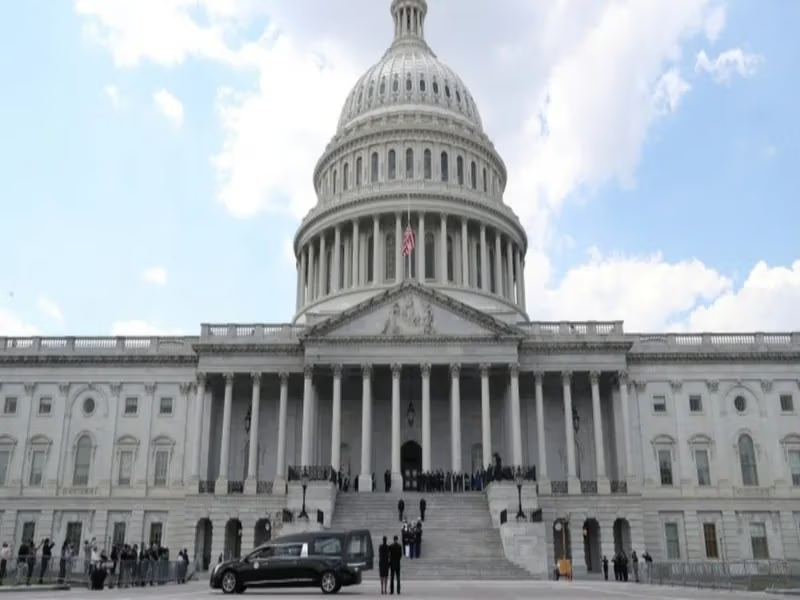The Senate made significant progress towards ending the longest US government shutdown in history on Sunday, passing a compromise bill to reauthorize funding and reverse layoffs for some workers.
Meanwhile, the measure, the result of weeks of negotiations among a few Democratic and Republican senators, does not include the healthcare subsidies that Democrats had insisted on weeks ago.
That seems to lend chaos to the legislature in the House of Representatives, where the leading Democrat and a number of his lawmakers have already declared their opposition.
A procedural vote in the Senate a few hours after the compromise surfaced saw the bill pass the 60-vote mark in order to proceed.
Republican Senate Majority Leader John Thune said that “After 40 long days, I’m hopeful we can bring this shutdown to the end.”
He stated that “From the precarious situation we’re in with air travel to the fact that our staff have been working without pay for a full 40 days now, all of us, Republicans and Democrats who support this bill know that the time to act is now.”
The law permits government funding up to January 30, 2026, and rescinds the layoffs of the federal employees authorized by the White House since the shutdown commenced on October 1.
It also ensures retroactive compensation of furloughed federal employees, and those who had remained in the job through the shutdown, and averts further layoff until January.
Hence, it will also approve long-term expenditure in certain federal departments. However, it does not contain an extension of tax credits on Affordable Care Act health plans that were instituted under Joe Biden, and which expire at the end of the year, sending premiums skyrocketing to enrollees in the plans.
Democrats have not agreed to reopen the government unless the GOP would reauthorize the subsidies, yet republicans have not agreed.
Nevertheless, Thune has informed the Democrats that he would vote on whether the subsidies should be continued once the government funding is reinstated. Therefore, the measure is not certain whether it will pass with support or not.
After the approval of the Senate, the bill will have to be passed through the House and signed by U.S. President Donald Trump, and this could take days.
Division regarding the compromise seemed to arise between the House and Senate Democrats. Several House Democrats declared their opposition, as did Hakeem Jeffries, the Democratic House minority leader, who has been on the side of the party in funding.
In a statement, he added that “America is far too expensive. We will not support spending legislation advanced by Senate Republicans that fails to extend the Affordable Care Act tax credits. We will fight the GOP bill in the House of Representatives, where Mike Johnson will be compelled to end the seven-week Republican taxpayer-funded vacation.”
The Republican speaker of the chamber, Mike Johnson, has had it in recess since mid-September, hoping to push the Democrats to influence them to accept a funding bill that they had passed.






